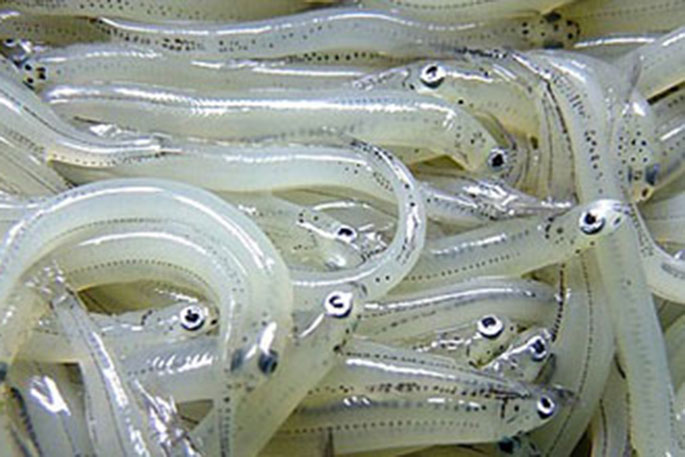All five species of whitebait may be extinct in 16 years, according to an open letter published online.
The letter - from the Canterbury Aoraki Conservation Board - urges three ministers to take action on whitebait preservation.
The letter addresses Minister of Conservation Hon Eugenie Sage, Minister for the Environment Hon David Parker, and Minister of Fisheries Hon Stuart Nash, and expresses their "deep concern" about the state of whitebait Inanga in New Zealand.
"As you may already know, Inanga is made up of five species, three of which are in decline and one is threatened. Massey University's Kyleisha Foote and Pierce McNie have stated that without immediate action, one of the five whitebait species could be extinct within three years with all five extinct by 2034," the letter says.
Several hundred giant kōkopu (galaxias argenteus), a species of whitebait, were released in the Bay earlier this year. The giant kōkopu were donated to Rainbow Springs in Rotorua as part of New Zealand Premium Whitebait ‘Fish Ark' project.
Particular concerns highlighted in the letter included the indiscriminate nature of some types of whitebait nets and the by-catch they produce, the length of the whitebait seasons, the existence of three differing sets of whitebait regulations, the lack of recreational quota and/or licencing, and the quasi-commercial nature of some recreational white baiters.
Dr Mike Joy, a senior lecturer at Massey University in Ecology/Zoology, posted his grievances online.
"Come on New Zealand we have to stop trading in endangered species."
The letter urges the government to undertake "an interdepartmental review of the whitebait fishery and associated issues. Given the government's renewed focus on biodiversity management, it is an opportune time for the Department of Conservation, Ministry for the Environment, and Ministry for Primary Industries, to work together on an integrated approach.
"The Canterbury Aoraki Conservation is not alone in its concern and interest in inanga management, with support for this call from a number of Conservation Boards."
The 2015 whitebait season forced scientists to consider the sustainability of the species, and called for whitebaiters to be licensed and for the banning of commercial harvesting.



2 comments
Greed
Posted on 22-04-2018 12:55 | By overit
Nothing will happen. They will go extinct. Human greed-live for now.
Give the fish a break
Posted on 22-04-2018 18:44 | By About that
I thinks its time for the fishing to be banned for the next five years. This will be for the future generations who may then be able to enjoy a great kiwi tradition. After the five year ban, a limit of 1kg per person net, per fisher, per day. I have been a keen whitebaiter all my life and have given it a rest for the last couple of years and so too have numerous other fishers to do their bit to preserve the species. Some people I have whitnessed taking for too much and a real shame. Come on fishers, a 5 year break for a long term gain is a small sacrifice.
Leave a Comment
You must be logged in to make a comment.